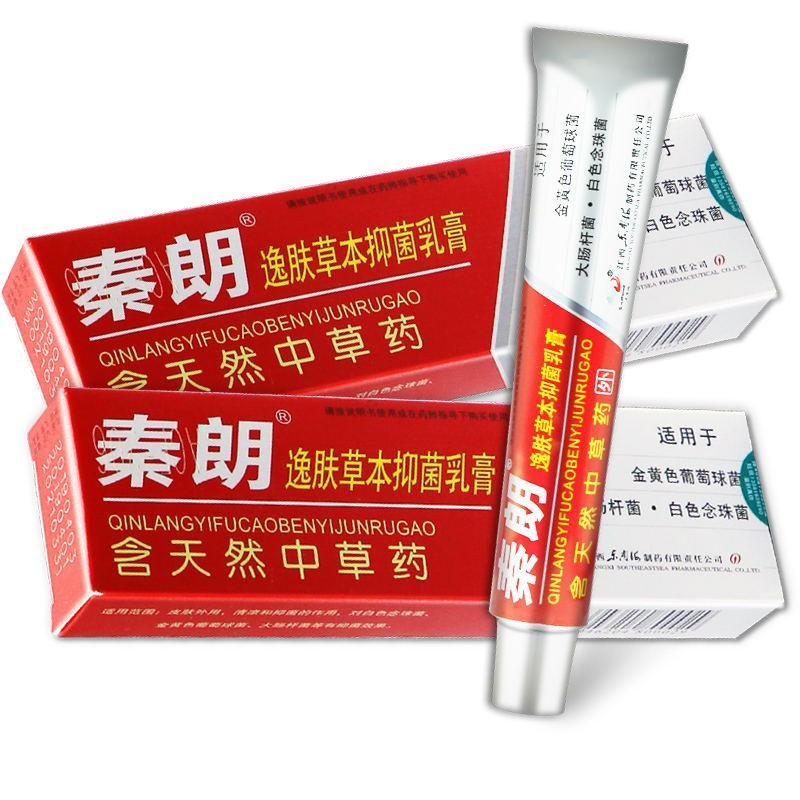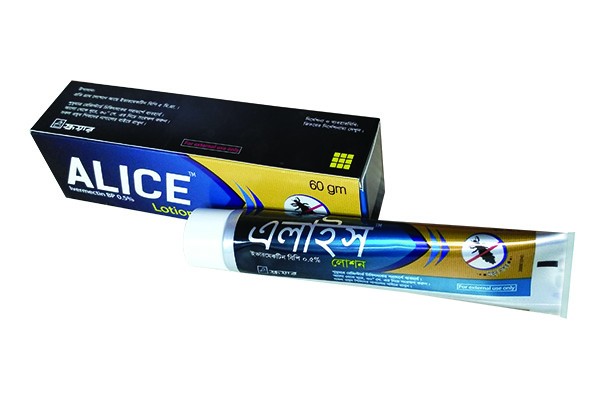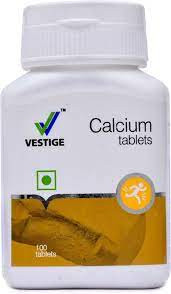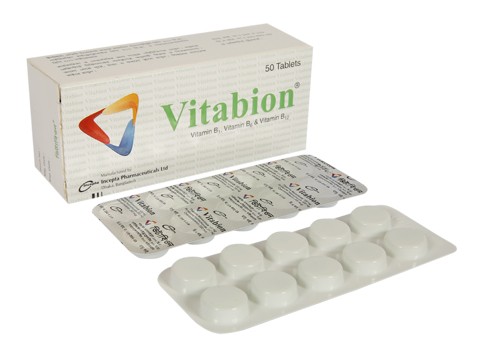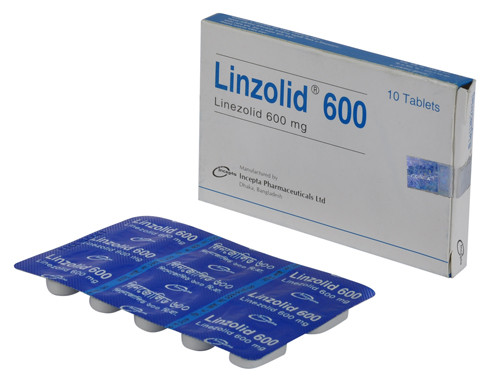

Linzolid Tablet 600 mg (10pic)
Inhouse product
-
৳1,030.00
৳1,550.00 -
৳10.00
৳12.00 -
৳280.00
৳500.00 -
৳127.00
৳132.00 -
৳900.00
৳1,300.00 -
৳112.00
৳120.00
Reviews & Ratings
Generic
Linezolid
Indications
Infections caused by Vancomycin-Resistant Enterococcus faecium, including instances with concomitant bacteremia.
Staphylococcus aureus (methicillin-susceptible and -resistant strains) or Streptococcus pneumoniae nosocomial pneumonia (including multi-drug resistant strains). Combination treatment may be clinically recommended if Gram-negative organisms are present in the documented or presumed infections.
Infections of the skin and skin structure caused by Staphylococcus aureus (methicillin-susceptible and methicillin-resistant strains), Streptococcus pyogenes, or Streptococcus agalactiae, including diabetic foot infections (without accompanying osteomyelitis).
Staphylococcus aureus (methicillin-susceptible only) or Streptococcus pyogenes infections of the skin and skin structure.
Streptococcus pneumoniae (including multi-drug resistant strains) community-acquired pneumonia, including instances with concomitant bacteremia or Staphylococcus aureus (methicillin-susceptible strains only).
Pharmacology
Linezolid is a synthetic antibacterial drug that belongs to the oxazolidinones, a novel family of antibiotics exhibiting in vitro action against Gram positive aerobic bacteria, certain Gram positive anaerobic bacteria, and some Gram negative bacteria. It inhibits bacterial protein synthesis selectively by a mode of action distinct from those of other antibacterial drugs. Linezolid binds to the 23S ribosomal RNA of the bacterial ribosome's 50S subunit and inhibits the development of a functional 70S initiation complex, which is required for bacterial translation. Linezolid has been demonstrated in time-kill experiments to be bacteriostatic against enterococci and staphylococci. Linezolid was shown to be bactericidal against the majority of streptococci strains.
Dosage
Patients who commence treatment on the parenteral formulation may be switched to oral presentation when clinically indicated. In such circumstances, no dose adjustment is required as Linezolid has an oral bioavailability of approximately 100%. The injection should be administered over a period of 30 to 120 minutes. The film-coated tablets or oral suspension may be taken with or without food.
Complicated skin and skin structure infections, Community-acquired pneumonia, including concurrent bacteremia-
- Pediatric Patients (Birth through 11 Years of Age): 10 mg/kg IV or oral t.i.d.
- Adults and Adolescents (12 Years and Older): 600 mg IV or oral b.i.d.
- Recommended Duration of Treatment (consecutive days): 10 to 14
Nosocomial pneumonia, Vancomycin-resistant Enterococcus faecium infections including concurrent bacteremia-
- Pediatric Patients (Birth through 11 Years of Age): 10 mg/kg IV or oral t.i.d.
- Adults and Adolescents (12 Years and Older): 600 mg IV or oral b.i.d.
- Recommended Duration of Treatment (consecutive days): 14 to 28
Uncomplicated skin and skin structure infections-
- Pediatric Patients (Birth through 11 Years of Age): <5 yrs: 10 mg/kg oral t.i.d. 5-11 yrs: 10 mg/kg oral b.i.d
- Adults and Adolescents (12 Years and Older): Adults: 400 mg oral b.i.d. Adolescents: 600 mg oral b.i.d
- Recommended Duration of Treatment (consecutive days): 10 to 14
Neonates <7 days: Most pre-term neonates <7 days of age (gestational age <34 weeks) have lower systemic Linezolid clearance values and larger AUC values than many full-term neonates and older infants. These neonates should be initiated with a dosing regimen of 10 mg/kg every 12 hours. Consideration may be given to the use of 10 mg/kg in every eight hours regimen in neonates with a sub-optimal clinical response. All neonatal patients should receive 10 mg/kg t.i.d. by 7 days of life.
Administration
Reconstitution of Oral Suspension: Shake the bottle to loosen powder. Add 75 ml (with the help of given cup) of boiled and cooled water to the dry mixture in the bottle. For the ease of preparation, add water to the bottle in two portions. Shake well after each addition until all the powder is in suspension.
Note: Shake the suspension well before each use. Keep the bottle tightly closed. The reconstituted suspension should be stored in a cool and dry place. Use within 21 days after constitution.
Intravenous Administration: Linezolid IV Injection is supplied in single-use, ready-to-use infusion bottles. Linezolid IV Injection should be administered by intravenous infusion over a period of 30 to 120 minutes. The intravenous infusion bottles should not be used in series connections. Additives should not be introduced into this solution. The infusion bottles should be stored at room temperature and protected from freezing. Linezolid IV Injection may exhibit a yellow color that can intensify over time without adversely affecting potency.
Interaction
Monoamine Oxidase Inhibition: Linezolid is a reversible and nonselective monoamine oxidase inhibitor. As a result, Linezolid may interact with adrenergic and serotoninergic agents.
Adrenergic Drugs: Some people who use Linezolid may have a reversible increase in their pressor response to indirect-acting sympathomimetic, vasopressor, or dopaminergic agents. To get the appropriate response, initial dosages of adrenergic drugs such as dopamine or epinephrine should be decreased and titrated.
Serotonergic Medications: Physicians should be on the lookout for signs and symptoms of serotonergic syndrome in patients receiving Linezolid and serotonergic agents at the same time.
Contraindications
Linezolid formulations should not be used in patients who have a history of hypersensitivity to Linezolid or any of the other product components. Linezolid should not be used in patients who are taking a medication that inhibits monoamine oxidases A or B (e.g., phenelzine, isocarboxazid) or within two weeks of taking such a medication. Linezolid should not be given to patients who have uncontrolled hypertension, pheochromocytoma, thyrotoxicosis, carcinoid syndrome, and/or who are taking directly and indirectly acting sympathomimetic agents (e.g. Pseudoephedrine), vasopressive agents (e.g. Epinephrine, Norepinephrine), dopaminergic agents (e.g. Dopamine, Triptans, meperidine, or buspirone are all serotonin 5-HT1 receptor agonists.
Side Effects
The majority of the adverse events associated with Linezolid were mild to moderate in severity. The most prevalent side effects among Linezolid patients were diarrhea, headache, and nausea. Oral moniliasis, vaginal moniliasis, hypertension, dyspepsia, localized stomach discomfort, itching, and tongue discolouration are some of the other side effects.
Pregnancy & Lactation
Pregnancy Type C. In pregnant women, there are no appropriate and well-controlled trials. Only if the possible benefit outweighs the potential danger to the fetus should linezolid be taken during pregnancy. Linezolid is not known to be excreted in human milk. Because a large number of medicines are excreted in human milk. When administering Linezolid to a breastfeeding mother, extreme caution should be used.
Precautions & Warnings
Patients who have recurring nausea or vomiting, unexplained acidosis, or low bicarbonate levels while taking Linezolid should seek medical attention right away. Patients should be continuously monitored for signs and symptoms of serotonin syndrome, such as cognitive impairment, hyperpyrexia, hyperreflexia, and incoordination, when Linezolid and concurrent serotonergic drugs are used. If signs or symptoms appear, doctors should consider discontinuing one or both drugs. When the concurrent serotonergic medication is stopped, withdrawal symptoms might occur. If patients develop signs of visual impairment, such as changes in visual acuity, changes in color vision, blurred vision, or a visual field defect, they should seek immediate ophthalmology attention. When patients were given Linezolid, they had convulsions. A history of seizures or risk factors for seizures was documented in several of these patients.
Therapeutic Class
Macrolides
Storage Conditions
Linezolid formulations should be kept at room temperature (15°C-30°C) and out of direct sunlight and moisture. All medications should be kept out of the reach of children.
Pharmaceutical Name
Incepta Pharmaceuticals Ltd
Frequently Bought Products
-
৳1,030.00
৳1,550.00 -
৳10.00
৳12.00 -
৳280.00
৳500.00 -
৳127.00
৳132.00 -
৳900.00
৳1,300.00 -
৳112.00
৳120.00
Online Shopping Bangladesh : MShopBD-Majumder Shop
MShopBD-Majumder Shop Online Shopping in Bangladesh is the Best Shopping store within 10000+ products cash on delivery in dhaka, Khulna, ctg & all over Bangladesh with COD-cash on delivery (Only Shipping Cost Advance ) under by www.esdp.gov.bd (bangladesh.gov.bd ) Home Delivery all Over Bangladesh different location and shop as like as Multivendor Online Sites in BD.
Thank you for choosing MShopBD - Majumder Shop!


